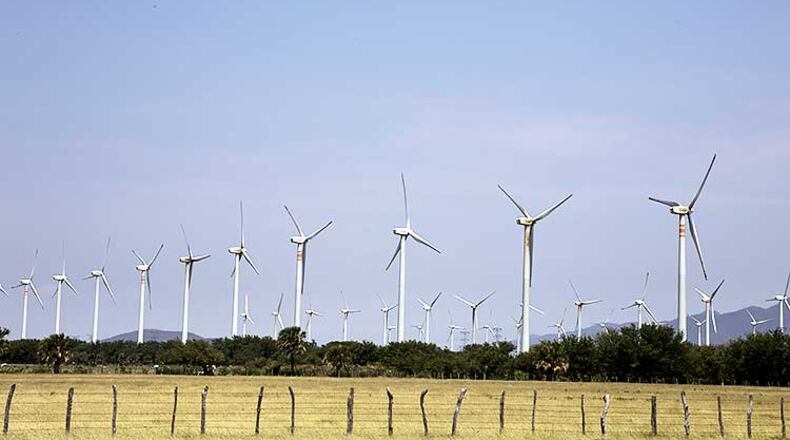Let’s be honest with ourselves: The new Democratic majority in the House won’t be able to enact new legislation. I’ll be astonished if there are bipartisan deals on anything important — even on infrastructure, where both sides claim to want action but what the GOP really wants is an excuse to privatize public assets.
So the immediate consequences of the power shift in Washington won’t involve actual policymaking; they’ll come mainly from Democrats’ new, subpoena-power-armed ability to investigate the fetid swamp of Trumpian corruption.
But that doesn’t mean that Democrats should ignore policy issues. On the contrary, the party should spend the next two years figuring out what, exactly, it will try to do if it gains policymaking power in 2021. Which brings me to the big policy slogan of the moment: the Green New Deal. Is this actually a good idea?
Yes, it is. But it’s important to go beyond the appealing slogan, and hash out many of the details. You don’t want to be like the Republicans, who spent years talking big about repealing Obamacare, but never worked out a realistic alternative.
So what does the Green New Deal mean? It’s not entirely clear, which is what makes it a good slogan: It could mean a number of good things. But the main thrust, as I understand it, is that we should make a big move to tackle climate change, and that this move should accentuate the positive, not the negative. In particular, it should emphasize investments and subsidies, not carbon taxes.
But wait, shouldn't we be considering a carbon tax? In principle, yes. As any card-carrying economist can tell you, there are big advantages to discouraging pollution by putting a price on emissions, which you can do either by imposing a tax or by creating a cap-and-trade system in which people buy and sell emission permits.
It’s Economics 101: A pollution tax or equivalent creates broad-based incentives in a way less comprehensive policies can’t. Why? Because it encourages people to reduce their carbon footprint in all possible ways, from using renewable energy, to conservation, to shifting consumption away from energy-intensive products.
A carbon tax is, however, a tax — which will upset the people who have to pay it. Yes, the revenue from a carbon tax could be used to cut other taxes, but convincing enough people that they will be better off overall would be a very hard sell. And claims that a carbon tax high enough to make a meaningful difference would attract significant bipartisan support are a fantasy at best, a fossil-fuel-industry ploy to avoid major action at worst.
The point is that going for a less-than-ideal but salable policy, at least initially, is better than letting the best be the enemy of the good.
Can we make big progress on climate change without disrupting Americans’ lives too much? My read of the data says yes.
The majority of U.S. greenhouse gas emissions come from electricity generation and transportation. We could cut generation-related emissions by two-thirds or more simply by ending the use of coal and making more use of renewables (whose prices have fallen drastically), without requiring that Americans consume less power. We could almost surely reduce transportation emissions by a comparable amount by raising mileage and increasing the use of electric vehicles, even if we didn’t reduce the number of miles we drive each year.
These are gains that could be achieved with a combination of positive incentives like tax credits and not-too-onerous regulation. Add in investments in technology and infrastructure that support alternative energy, and a Green New Deal that dramatically reduces emissions seems entirely practical, even without carbon taxes. And these policies would visibly create jobs in renewable energy, which already employs a lot more people than coal mining.
Overall, however, Democrats can surely do for climate change what they did for health care: devise policies that hugely improve the situation while producing far more winners than losers. They can’t enact a Green New Deal right away — but they should start preparing now, and be ready to move in two years.
About the Author
Featured
